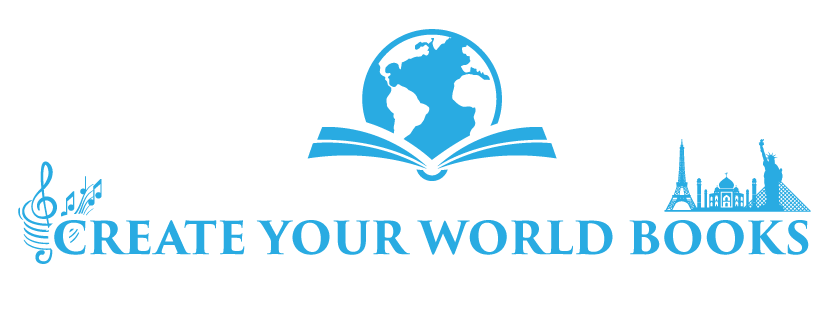Of the 10 languages I have studied, I speak English, Russian, Spanish, French and Italian fluently and Serbo-Croatian and Portuguese at an intermediate level. I used to speak basic Hungarian when I lived in Budapest in the fall of 1997, but I have lost most of it. I can still read some Hebrew, but I can’t speak. Two weeks into my Arabic class, I got sick and my stereo broke so I couldn’t play my Arabic language CDs anymore. Unfortunately, I only remember some words in Arabic and can barely read. I was born in the former Soviet Union and came to the United States when I was three years old. I grew up speaking Russian at home and English at school and with friends.
Language is Music
Language is a window to the world. Without being able to communicate, my world would be bland and colorless. Having worked and traveled in former war zones, I have seen that much of the violence and tension in the world could be reduced with improved communication and global understanding, but people either lack the desire for dialogue or simply cannot understand each other.
Having labored through many dull language classes, I saw how ineffective rote memorization techniques alienated and discouraged students and knew that I could change language education to make it more fun and engaging. In Taiwan, I saw a teacher stare into a book and just read English phrases in a monotone voice and ask her students to repeat. She didn’t notice that her students were looking out the window and were bored out of their minds. After normal school, Taiwanese kids go to cram schools to memorize even more information and take extra English lessons, but they are not able to communicate in English and are scared to death to speak to a native English speaker. After years of memorizing dictionaries, like they do to learn thousands of Chinese characters, most Taiwanese adolescents need glasses. Having been born with eye problems, I had no desire to weaken my eyes or other people’s eyes to learn foreign languages. I knew that it’s possible to learn without major eye strain.
While reading Dr. Oliver Sachs’ book Musicophilia, about the neurological aspects of music, I became inspired to write about how music helped me learn foreign languages. (This was the second time in less than two years that Dr. Sachs’ writing provoked a profound and life altering change in my life. You’ll read more about this as I describe the mystery he helped me solve about my ability to learn foreign languages.)
After solving my personal mystery about why I was so dexterous in learning foreign languages, I developed fun tricks and lessons that will enable others to be successful. Creating this book was a way for me to contribute to international communication and to teach people that they can be their own peacemakers.
Katrin, a deaf German friend of mine, learned to speak English because she listened to music. (She can speak and read lips but has very limited hearing.) Even those students who had better hearing than she did in her deaf school in Germany did not learn to speak and pronounce English as well as she did because they did not have any musical training or exposure to music. Despite her hearing impairment, she played the flute as a child and listened to music. Feeling the sound vibrations impacted Katrin’s ability to sense the rhythm of music and language. The combination of the little that she could hear combined with the vibrations that she could feel from music enabled her to develop good speaking patterns in both German and English. Don’t let your hearing issues keep you away from listening to and appreciating music. Both of my parents are partially deaf and they appreciate music and can distinguish between a high note and a low note. You don’t have to have perfect pitch to follow my instructions. I am not a gifted musician and sing out of key more often than I like. We are all musical beings. When we are born, we don’t start speaking automatically. We listen before we speak. When learning languages, we should follow this same pattern and listen to the music of the language before opening our mouths to pronounce words.
Not always. My ‘skill’ and ‘gift’ were often a major pain and psychological weight. The more people knew of my abilities, the more requests I would get for translation and interpretation— my incarnation of hell. Sometimes, even scrubbing the toilet was more enjoyable than being the Tower of Babel tour guide. The worst was when the person I was interpreting for wasn’t particularly bright or was asking stupid questions. I was embarrassed for being their spokesperson. Being stuck communicating for others was and still is a horrible level of purgatory. If Dante were still writing The Inferno, I would ask him to add the tasks of translating and interpreting to one of the miserable rings of hell!
For most of my life this ‘gift’ was a huge mystery. I could not understand why other people had such a hard time learning to speak and understand another language. Now, I see that instead of feeling tasked with communicating for others, I want to share my knowledge for people to communicate for themselves and become polyglots.
If you are still a beginner or intermediary student, you absolutely have to keep learning grammar and vocabulary. They are the foundations of any language. Language is Music is a supplement to traditional language education. Using music, TV, radio and film as additions to your language lessons will only reinforce grammar rules and vocabulary lessons. For example, a Russian student who is just starting to study English listens to Frank Sinatra’s famous song, New York, New York and learns to sing the song or at least memorize the verses. In class, the teacher is instructing students on how to form negative contractions like the word “doesn’t”. This type of negative contraction doesn’t exist in Russian and it’s much easier for the student to recall how to say this correctly because he has the verse, “I want to wake up in a city that doesn’t sleep” from New York, New York in his head. It’s much easier to remember words, grammatical formations, phrases, idioms, irregular verbs, etc when one has heard the language sung and can recall words from songs that bring the language to life. Advanced students who just want to improve their listening comprehension and speaking abilities who have a strong foundation in grammar and vocabulary, may find it appropriate and more fun to stop taking classes and making their target language come alive with this method.
This book can be used for any language and is not meant specifically for people studying English or any other language. Therefore, it is impossible to give musical examples for all languages. The exercises can be used for any language for which one can find music, film, TV, radio, and Internet resources. (If you are studying Ancient Greek, you may not find ancient Greek vocal music and you certainly will not have movies, film and radio programs to use, most of the exercises in Language is Music will not be applicable for you.
I am not currently learning any new languages nor do I have any plans to. It’s a better use of my time to promote my books and help others communicate for themselves and feel confident about learning foreign languages than to dedicate my time to absorbing a new tongue.
I have studied three non Indo-European languages. When I lived in Budapest, Hungary, I spoke basic Hungarian and despite Hungary’s location in Europe, its language is part of the Finno-Urgic language group that originates from Asia. As I have not lived in Hungary since 1997, I unfortunately barely speak the language now. I’ve studied Hebrew and Arabic and learned to read from right to left, find vowels on top of and below letters, and pronounce guttural sounds that don’t exist in some European languages.Though I have not learned any East Asian, South Asian, African languages or any other tongues, the basic methods of language acquisition are standard across language groups. Anyone using the methods described in Language is Music should be able to improve his or her language ability.
Please read question #5. Whether you are a visual or oral learner, all language is based on sounds and music. Even if you have to see something in order to understand it and learn it, you have to hear sounds and words to pronounce them correctly. Eventually, you will have to use your auditory senses to learn a language. Language is Music can still work for you even if you primarily learn by visual methods.
When we are babies, we listen for almost a year before we start speaking. In school, we start learning foreign languages using boring grammar rules and vocabulary charts that can be about as effective as strong sleeping pills in getting us to stay awake and really learn a language. The exercises in Language is Music, are not all new things that I created. These are lessons that I picked up along my linguistic trajectory, learned from other people or came up with while writing this book. They are based on common sense and practice. The basic premise is that we are all like our own radio station emitting sounds and hearing sounds within a certain range of frequency; we have to expand the range of sounds that we hear in order to speak in another language. For example, If I am a French speaker and am at radio station 90.1 FM, then I can’t hear the Chinese speaker at radio station 105.7 FM because I am only able to hear sounds at my frequency. If I try to learn Chinese and pronounce Chinese words, I will have a heavy French accent. Some Chinese speakers may not even be able to understand what I am saying because the sounds coming out of my mouth are from my French radio station and not anything close to Chinese. Therefore, I have to increase my range of frequencies that I can hear before I can even attempt to say a word in Chinese. I need to listen to Chinese songs and radio programs to get used to the sounds of Chinese. I need to listen to Mozart because his music has the highest range of sounds from low to high frequencies. If I really want to learn, then I should follow the exercises in Language is Music.
Learning similar languages at the same time can be very confusing and I usually don’t recommend it unless you’re an experienced language learner. If you are learning languages from different language families, it can be easier but you can still get confused.
Travel Happy, Budget Low
I’ve traveled in 50 countries and a few special zones. (The 50 include the nine countries I’ve lived in.) List of countries and zones I’ve traveled in:Armenia, Austria, Brazil, Cambodia, Canada, China, Croatia, Cuba, Czech Republic, Denmark, Ecuador, Egypt, Estonia, Finland, the Gaza Strip, Germany, Hong Kong, Israel, Italy, Japan, Jordan, Kazakhstan, Latvia, Lithuania, Netherlands, Norway, Paraguay, Peru, Poland, Portugal, Qatar, Romania, Serbia, South Korea, Spain, Sweden, Switzerland, Tajikistan, Thailand, Turkey, United Kingdom, Uruguay, Vietnam, and the West Bank.I have lived in nine countries:Argentina, Bosnia and Herzegovina, France, Hungary, Mexico, Russia, Taiwan, Ukraine, United States (California, Massachusetts, Missouri, and New York.)
Quite the contrary. I just now how to spend my money wisely. You can do it too!
I love to travel and it is one of my main priorities in life. I didn’t own a car until I was 27 years old. The more of an effort one makes to travel on a budget, the closer he/she gets to the local culture. When riding public transportation, whether its a super clean Tokyo subway car or a packed and stinky Beijing one, the traveler gets to experience the day to day life of a local person. I learned how to buy inexpensive plane tickets and find cheap accommodations and eat simple meals to make my budget stretch for as long as possible.
Being a traveler is a mindset.






